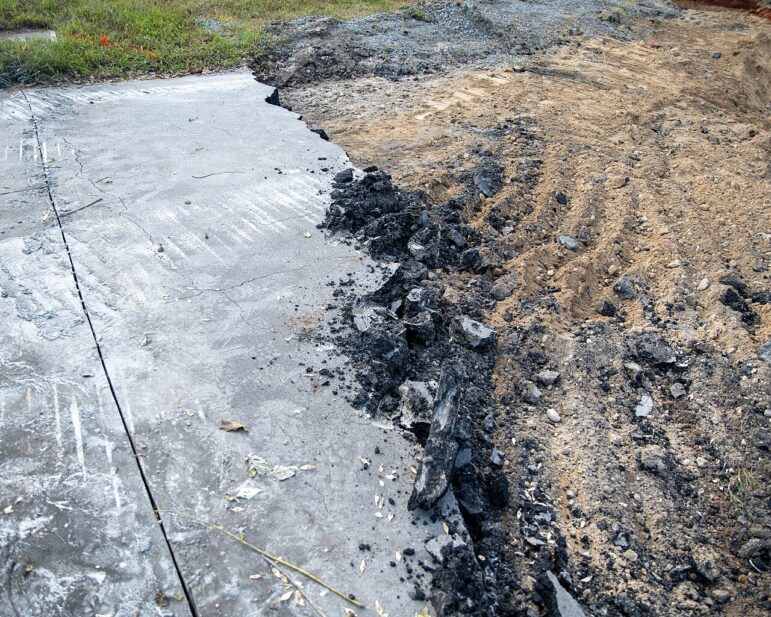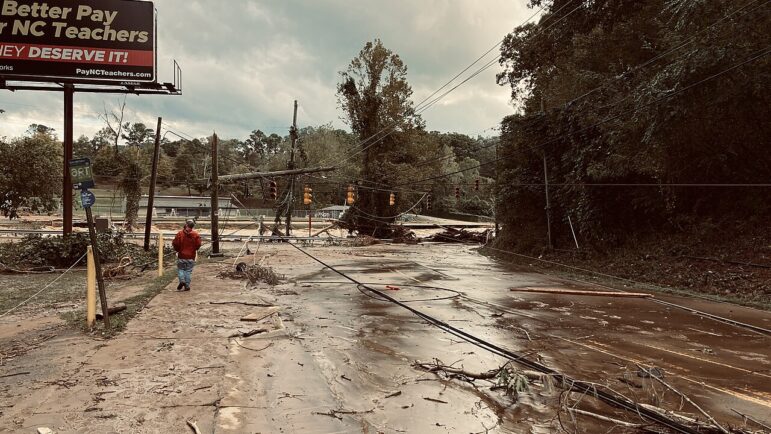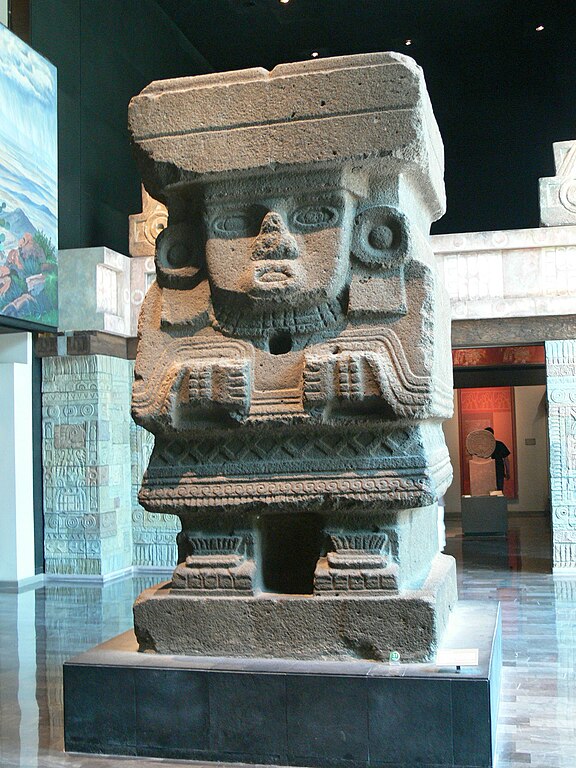
Editorial note: The Wild Hunt continues its coverage of Hurricanes Helene and Milton this weekend with dispatches from Pagans on the ground. Today we hear from Professor Enrique Alberto Gómez, and on Sunday, we will have a report from our regular contributor Sheri Barker. We also encourage you to read our report from Liz Watkins from earlier this week. Now, here’s Enrique.
Cell phone service and local internet came back five days after Hurricane Helene ravaged Western North Carolina, and that is when the stories of tragedy and loss started to come in.
A member of my Pagan group who had moved two counties out was fleeing her home with her family when a flash flood overtook them. They are missing and presumed dead, along with hundreds of people in this region. We are just learning the magnitude of a disaster that will shape this region for generations. Among the superlatives that people are using, I keep hearing the word “biblical.”
Even though Helene had been downgraded to a tropical storm by the time it reached our region, it still dumped about 20 inches of rain in just a few hours. Where we are in the Blue Ridge Escarpment, the elevation change from the Piedmont region acts to squeeze the moisture of gulf storms, so that even if there weren’t substantial wind, the storm acted like a water hose pumping water from the warm, moist-rich gulf to the highest mountains east of the Mississippi. The effects were tragic.

A photo of a washed-out roadway in North Carolina following Hurricane Helene, taken October 3rd or 4th, 2024 [NCDOTcommunications]
This is not normal. We expect hurricanes to dissipate hundreds of miles away, as soon as they make landfall and before their energy reaches us. Helene was so organized, moving so quickly and hauling so much moisture, that when its eye reached my town I could step outside and see blue sky above.
We are in profound mourning right now. We are realizing not just the loss of life, but that our mountain communities will never be the same. Not only are there people that experienced individual loss, but whole features of the landscape and the urban layout will be permanently altered in what people are calling the Katrina on the Mountains.
Monday morning comes without power or cell phone service. I sit on my driveway scanning the radio for any news. I tune in to a local Christian talk radio station for any news, but instead of emergency notifications, I hear the show’s host pontificate about how Christians should take this disaster as an opportunity to evangelize, now that people are experiencing the fear of God.
The claim that a jealous god should punish indiscriminately Christian and Non-Christian alike is self-evidently morally and theologically bankrupt. I would not dwell on this if it were not that there is a parallel perspective in Pagan communities. We may not say it out loud, but we may think about how this is an Earth or Sea Goddess’s response to human-driven climate change. I am afraid that we are no better than an extremist preacher when we indulge in this language.
Those of us in Earth-based spiritual traditions encounter our spiritual nuturing in nature rather than in revealed texts. But this begs the question, what sense can we make for ourselves in these traditions when we look to nature and are then afflicted by natural disasters?
It is in times like this when we recognize that we often have gaps in our understanding of our own religion and practice, which we fill with internalized Christian theological frameworks that we have yet to unpack. For instance, you may be familiar with the Christian theological “problem of evil”: how could an all-powerful, all-knowing, all-present, all-good and beneficent god allow terrible things to happen? Christian theologians’ answers to this question are known as theodicies. I will not rehash any of them, but I do urge all of us to consider that Pagans have at their disposal a universe of approaches to the problem of evil that are not available to our Christian friends because they would be considered heretical views on the nature of divinity.
There are also a great many Pagans who do not have a problem of evil at all. If you were, for instance, an atheopagan, where there are no gods, or you were a soft polytheist who see gods as archetypal projections of the human psyche, you just would not experience this issue at all. Folks like me, on the other hand, who see gods as having an independent personhood and agency to my own, will have an uphill struggle still.

Devastation in Asheville, NC, following Hurricane Helene, taken September 27th. A lone figure walks along a flooded street beneath a billboard asking for higher pay for North Carolina teachers, like a relic of a vanished world. [Bill McMannis, Wikimedia Commons, CC 2.0]
For years I have cultivated a devotional practice to a figure known to archeologists as the Great Goddess, to whom the largest pyramids of Teotihuacan, one of the largest cities in the world in the 7th century of the Common Era, were dedicated. This was a chthonic deity of mountain springs, rivers, and lakes that sustained a large city during the dry season in central Mexico where I was born. The identifying glyph for this deity is a disembodied hand from which a stream of water laden with biota and precious stones emerges.
When I moved to the mountains of Western North Carolina, I felt very drawn to this figure, as I depend like so many on these mountain waters. When I behold a mountain spring bubbling forth from cracks deep in the granite nourishing a thriving community of jade-colored moss, rock algae, and ferns hosting salamanders, crawdads, and tadpoles, I am profoundly moved.
What I am seeing manifest is the virtue of generosity: the hand of this Goddess bestowing a boon of flowing moisture and nutrients to all. And this generosity cascades on. No single being holds on to it but allows this gift to flow through them and around them to benefit a universe of beings downstream. The generosity of the Goddess propagates and cascades in the fractal flowing pattern of a mountain river basin above and below the ground and sometimes in morning mists. This image is so central to the Mesoamerican culture that the Nahuatl word for community is “altepetl,” meaning “water-mountain.”
This virtue made manifest is my motivation for a devotional practice not so much driven to beseech this Goddess for the continuance of this boon, but that I will demonstrate this same virtue in my life living in gratitude of the generosity of beings unseen upstream and in mindfulness to beings downstream. There is an ethic that comes from seeking a life of virtue of divinity.

A statue likely to represent the Great Goddess of Teotihuacán, housed in the National Museum of Anthropology, Mexico City, Mexico [Wolfgang Sauber, Wikimedia Commons, CC 2.0]
And there is a shadow part of this too. Sometime around the year 700, the great city of Teotihuacan diminished and emptied. A few centuries later, a new people, the Mexica, came with a pantheon that included a Goddess named Chalchiuhtlicue, “She of the Jade Skirt,” widely regarded by historians as the continuity of the Teotihuacan Great Goddess. According to surviving Mexica accounts, the world was destroyed four times before by the presiding deity of each creation, and in one of them, Chalchiuhtlicue destroyed the world in a giant flood, a cultural memory of tragic natural disasters involving water like so many cultures of the world.
Did the virtue of this Goddess of the Mountain Waters fail us? Are we being punished in a biblical fashion? Looking at the shocking images of washed-out roads and town centers that could only be the aftermath of a thousand-year flood, it dawned on me in the few hours of this storm, a single stream had worn away as much of the landscape as it might have had it kept its little flow for a thousand years. Whether the water that flows from the mountain is life-giving or life-diminishing, virtuous or unkind, it may just be a matter of what space-time scale we are considering. In time, a small, underground stream can just as well wash away the foundations of a home and sicken the household with mold, just as as a sudden mudslide can, while at the same time also circulating nutrients and making available new soil for plant growth.
The antibiotics that save a child’s life are sheer horror to their intestinal flora. Nothing real in this world is entirely good, just like it is never entirely bad. Considering the possibility that goddesses and gods are not psychological projections opens us to the possibility that non-human intelligences operate in radically different time scales than we do, and it is on those time scales where their meaning and virtues become evident.
Disasters are prompts for questions. But the question, “what are we being punished for?” is the wrong one. The invitation is for us to inhabit a temporal perspective where the virtues of the gods become meaningful and evident. A Paganism that is anchored on those distant time and space horizons is also an invitation to live in those same value systems, where we might build a culture that is resilient with a human infrastructure that understands its relationship to its surroundings.
After the storm, I was walking by the edge of the Tuckasegee River, one of the oldest in the world. I saw the debris from when the river flooded its banks just a few days ago. Among the garbage and silt I saw one stand of river cane, or canebrake, which had survived unscathed. River cane is the essential material for the local Cherokee basket-making tradition. The canebrake stood, almost as if saying, “We expected this, we were built for this. When the river surged we bent that we would not resist the fast-moving waters. We entangled our roots to hold on to each other. This will also happen again.”
Can we rebuild our mountain communities with the intelligence of a canebrake?
Can the simple river cane help us remember that calamity is part of life in this world – regardless of whether or not we deserve such calamity?
A Mexica midwife would bathe a newborn child and greet them with the acknowledgment of suffering to come with these words recorded in the Florentine Codex: “The gods Ometecutli and Omecioatl who rule in the realms of the ninth and tenth heavens, have begotten you in this light and brought you into this world full of calamity and pain. Take then this water, which will protect your life, in the name of the goddess Chalchiuhtlicue. Receive this divine water, which must be drunk that all may live, that it may wash you and wash away all your misfortunes, part of the life since the beginning of the world.”
Prof. Gomez also asked us to tell our readers to please consider supporting mutual aid initiatives that directly support and work with ravaged mountain communities such as:
- Appalachian Medical Solidarity/Asheville Survival Program: Venmo @AppMedSolid / Cashapp: $Streets1de – “Flood Support” in description.
- WNC Rural Organizing and Resilience: Paypal ruralorganizingandresilience@gmail.com.
- Mutual Aid Disaster Relief: https://mutualaiddisasterrelief.org
Enrique Alberto Gómez was born in Mexico City. He is an associate professor of physics and astronomy at Western Carolina University with a Ph.D. from the University of Alabama.
The Wild Hunt is not responsible for links to external content.
To join a conversation on this post:
Visit our The Wild Hunt subreddit! Point your favorite browser to https://www.reddit.com/r/The_Wild_Hunt_News/, then click “JOIN”. Make sure to click the bell, too, to be notified of new articles posted to our subreddit.